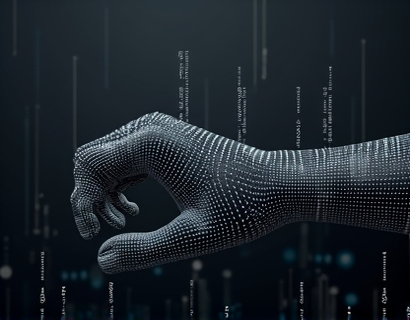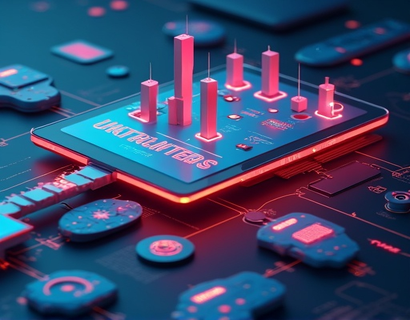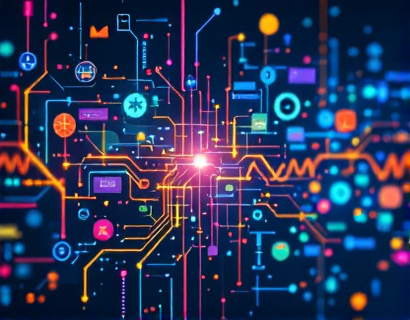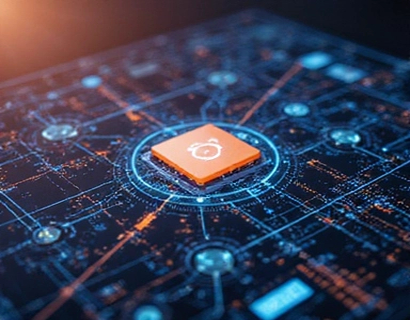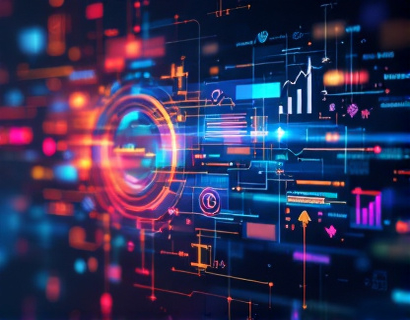Empowering Digital Innovation: The Synergy of Crypto and AI
The intersection of cryptocurrency and artificial intelligence represents a frontier of digital transformation, where the convergence of these two cutting-edge technologies is redefining user experiences and driving unprecedented innovation. This article delves into the profound impact of merging crypto and AI, offering insights that are particularly valuable for tech professionals and early adopters who are keen on harnessing the potential of these advanced solutions.
The advent of blockchain technology has not only revolutionized the financial sector but has also opened new avenues for decentralization, transparency, and security. Meanwhile, artificial intelligence, with its capabilities in machine learning, natural language processing, and predictive analytics, has become a cornerstone of modern digital services. When these two realms intersect, the possibilities for creating enhanced, secure, and user-centric digital experiences become vast and exciting.
Enhancing Security with AI-Driven Crypto Solutions
One of the most significant benefits of combining crypto and AI is the enhancement of security measures. Traditional cryptographic methods, while robust, are not immune to evolving threats. AI can analyze vast amounts of data to identify patterns and anomalies that indicate potential security breaches. By integrating AI into blockchain networks, systems can proactively detect and mitigate risks, ensuring a more secure environment for transactions and data storage.
For instance, AI algorithms can monitor blockchain activity in real-time, flagging suspicious behavior and automating responses to threats. This not only strengthens the security of crypto assets but also builds trust among users who are increasingly concerned about the safety of their digital assets. The synergy between AI and crypto in this context is not just about preventing losses but also about creating a more reliable and trustworthy digital ecosystem.
Optimizing Smart Contracts with Machine Learning
Smart contracts, self-executing contracts with the terms directly written into code, are a pivotal component of blockchain technology. However, their effectiveness can be significantly improved through the integration of AI. Machine learning algorithms can analyze historical data and predict outcomes, enabling smart contracts to make more informed and adaptive decisions.
For example, AI can help in automating complex legal and financial processes by interpreting and executing smart contracts based on real-time data inputs. This not only increases efficiency but also reduces the potential for human error. Moreover, AI can assist in optimizing the code of smart contracts, making them more robust and less vulnerable to exploits. The result is a more dynamic and reliable smart contract ecosystem that can adapt to changing conditions and requirements.
Personalized User Experiences through AI-Powered Crypto Platforms
The user experience is a critical factor in the adoption and success of any digital platform. By leveraging AI, crypto platforms can offer personalized experiences that cater to individual user preferences and behaviors. AI-driven recommendation systems can suggest crypto assets, trading strategies, and educational resources based on a user's past interactions and performance.
Personalization extends to the interface and functionality of crypto applications. AI can analyze user data to tailor the user interface, making it more intuitive and user-friendly. This level of customization not only enhances user satisfaction but also increases engagement and retention. For early adopters and tech-savvy individuals, the ability to interact with crypto platforms in a way that feels natural and tailored to their needs is a significant advantage.
Decentralized AI Models for Enhanced Data Privacy
Data privacy is a growing concern in the digital age, and the combination of crypto and AI offers a promising solution. Decentralized AI models, such as federated learning, allow AI algorithms to be trained across multiple decentralized devices without centralizing data. This approach ensures that sensitive information remains on the user's device, reducing the risk of data breaches and enhancing privacy.
In the context of crypto, decentralized AI models can process and analyze transaction data without compromising user anonymity. This not only protects user privacy but also aligns with the core principles of blockchain technology. The result is a more secure and privacy-focused digital environment where users can transact and interact with confidence.
AI-Driven Market Predictions and Trading Strategies
One of the most exciting applications of AI in the crypto space is its ability to provide accurate market predictions and trading strategies. Traditional methods of analyzing market trends and price movements are often limited by human biases and the sheer volume of data. AI, with its advanced algorithms and machine learning capabilities, can process and analyze vast datasets to identify patterns and make predictions with higher accuracy.
AI-driven trading bots can execute trades based on these predictions, optimizing portfolios and maximizing returns. For traders and investors, this means access to powerful tools that can level the playing field and provide a competitive edge. Moreover, AI can help in risk management by continuously monitoring market conditions and adjusting strategies in real-time. The integration of AI in crypto trading is transforming the way users approach investment and wealth management.
Building Decentralized AI Ecosystems
The future of AI in the crypto space lies in the development of decentralized AI ecosystems. These ecosystems leverage blockchain technology to create a distributed network where AI models and data are shared and utilized in a transparent and secure manner. Decentralized AI platforms can foster collaboration among developers and researchers, accelerating innovation and the development of more advanced AI applications.
In such ecosystems, users can contribute their computing power and data to train AI models, earning rewards in the form of crypto tokens. This incentivizes participation and creates a community-driven approach to AI development. The decentralized nature of these platforms also ensures that no single entity has control over the AI models, promoting fairness and reducing the risk of bias.
Challenges and Considerations
While the potential of combining crypto and AI is immense, there are several challenges and considerations that must be addressed. One of the primary concerns is the regulatory landscape. As both crypto and AI are relatively new and rapidly evolving fields, regulatory frameworks are still catching up. Ensuring compliance with existing laws while advocating for supportive regulations is crucial for the sustainable growth of these technologies.
Another challenge is the technical complexity involved in integrating AI with blockchain systems. Developing scalable and efficient solutions that can handle the computational demands of AI while maintaining the decentralized and secure nature of crypto requires expertise and innovation. Additionally, there is a need for standardization to ensure interoperability and seamless integration across different platforms and applications.
Conclusion
The convergence of cryptocurrency and artificial intelligence is poised to revolutionize the digital landscape, offering transformative solutions that enhance security, personalization, and efficiency. For tech professionals and early adopters, the opportunities presented by this synergy are vast and exciting. By embracing the potential of AI-powered crypto solutions, we can build a more secure, innovative, and user-centric digital future.




